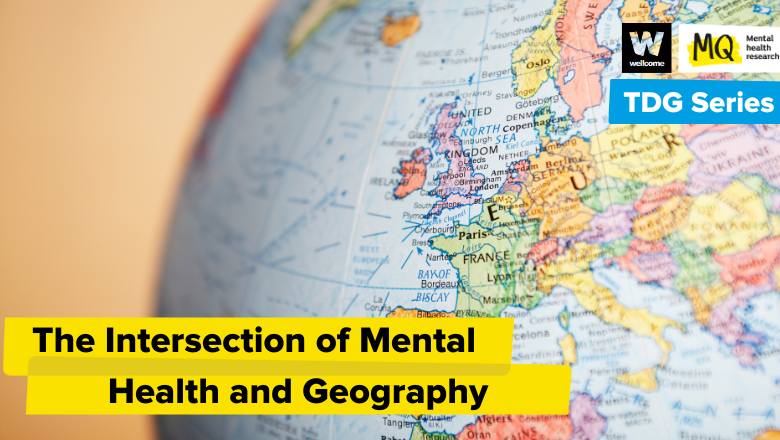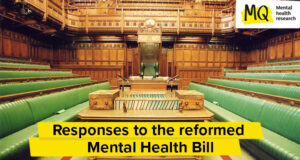
In 2024, MQ Mental Health Research created an opportunity, developed and funded by Wellcome, to support researchers outside psychiatry, psychology, and neuroscience to apply bold and novel ideas and methods from their discipline to mental health science. In this Transdisciplinary Research Grant series, we will go through each study, and explain why the results are vital to the future of mental health interventions.
Mental health and geography might seem like two very different topics, but they’re deeply connected. Human geography is the study of how humans interact with their physical environment, including their evolution, strategies for survival, resource usage, and regional cultures. Human geographers who specialize in mental health are looking at how the spaces and places we live in affect our experiences of mental illness—and how those experiences, in turn, shape the world around us.
Dr Cheryl McGeachan’s Research on Geography and Mental Health
Dr Cheryl McGeachan and her team studied how geography influences mental health. They examined how understanding this connection could help design more caring, supportive environments and challenge systems that create inequality and oppression.
Moving Beyond Traditional Psychiatric Perspectives
Instead of examining mental illness purely from medical or psychiatric perspectives, the team focused on the lived experience. Over six months, the team explored several social sciences and humanities studies, looking for real-life experiences that traditional research often overlooks. They discovered pieces of stories and expressions that provide a vivid understanding of what it’s like to deal with mental health challenges.
Creative Approaches to Understanding Mental Health
They took things a step further by collaborating with a professional storyteller to reimagine the classic tale of The Lonely Fisherman, incorporating themes from their research. They also organized a creative writing workshop where people with firsthand experience could craft their own “geo-stories.” These stories examined how different places and environments, whether real, emotional, or imagined, shape people’s mental health experiences. The team then created a community resource pack to help others share their stories and learn how geography influences mental health.
The Powerful Link Between Place and Mental Health
What emerged from this project were deeply personal, complex accounts of how the “where” matters just as much as the “what” in mental health. These stories showed that our environment, whether they’re positive or negative, is integral in shaping our mental health. Paying attention to these insights is important for creating better research and solutions.
Inspiring Future Research and Action
Cheryl’s team aims to inspire more research in this area and encourage more researchers to incorporate lived experience. By connecting individual experiences to the places where people live and interact, there is potential to provide better support for everyone’s mental health.




